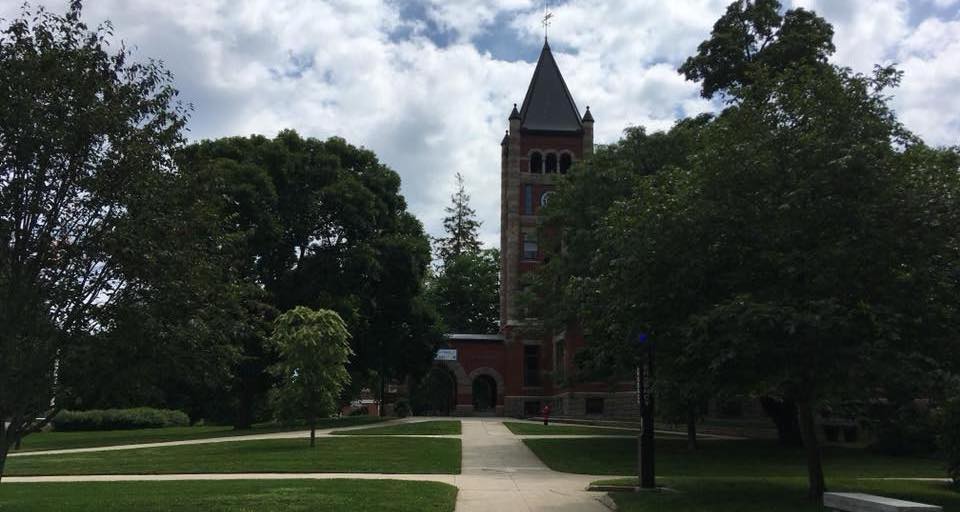
l. Biological Education for the Modern Day: Changing Needs
From genomics and genetic manipulation to ecological and evolutionary history, modern biological data has tackled research questions and ideas that would have been incomprehensible mere decades ago. However, with the rapid advancement of biological knowledge has also come a rapid change in the scientific challenges faced by our students, whether their futures are as non-scientist citizens or professional scientists in training. Such challenges not only include comprehending new and often interdisciplinary biological discoveries reported in the news, but accurately assessing the deluge of information (both scientific and pseudoscientific) available online, reported by the media, and debated in our socio-political discourse. Culturing a scientifically literate public requires more direct involvement in the scientific process, and a much deeper comprehension of how we can learn and assess biological concepts. In addition to these challenges, students seeking to become professional scientists must be prepared for the changing landscape of biological research. In the modern age, simply being an expert one one discrete field is rarely sufficient; research agendas are increasingly geared toward integrative, multi-disciplinary approaches that require students to both competently assess unfamiliar concepts and synthesize novel research questions that may branch multiple traditional disciplines.
While the needs of modern biology students have changed rapidly, many of our methodologies in science teaching still reflect the bygone goal of simply being proficient in knowing a large number of facts. The increasing recognition of this discrepancy between outdated teaching methods and modern student needs is prompting a new approach to teaching science, one grounded in a more “learner centered” approach (Felder and Brent, 2016) that emphasizes concepts over memorized facts, and direct engagement with course content over passive listening to lectures. In my teaching I approach learner-centered methodologies via two main focal points: creating an accepting environment focused on building personalized connections with students, and on encouraging the self-aware, metacognitive learning of biological concepts.
ll. Teaching as an Interpersonal Relationship Historically, one of the principle methods for teaching a student a key set of concepts, skills, or methodologies was the apprenticeship, an honest interpersonal relationship between teacher and student that allowed for deep engagement with concepts and techniques. These powerful relationships entailed far more than simply the transferral of knowledge; they required a reciprocal relationship in which points of confusion or misunderstanding would be made clear to the instructor, whom in turn could modify their teaching approach to address these issues. Such reciprocal learning also helped the student become more self-aware of their learning strategies, aiding their progress from student to independent professional in the given practice. In modern day academia, such reciprocal relationships and self-aware learning are still exemplified by academic mentors, research advisors, and student academic tutoring services.
lll. Methods and Assessments for Creating Self-Aware Learning and Reciprocal Interactions As someone whom arrived at a teaching career via my work as an academic tutor, my goal is to bring this powerful history of self-aware learning and reciprocal feedback between instructor and student to my classrooms, often is ways that serve as both metacognitive teaching aids and concept assessment tools. For example, As a teaching lecturer for a Cells, Genes, and Biotechnology class, I used Pre and Post Course Assessments. These prompted students to reflect on their current knowledge and perspectives regarding biotechnology before taking the course, and thus how these may have changed through their course experiences. This information also served to assess their current thoughts and understanding of key topics in biotechnology, thus informing my approach during the semester. In future classes, I also plan to use these assessments to encourage a more explicitly inclusive class structure by asking a question on preferred name and pronoun use.
During the course itself, several additional techniques serve to create a more interpersonal and metacognitive class environment. In the same Biotechnology class I also made use of “Biotechnology in the News” writing assignments that, importantly, underwent 2 rounds of grading — one for an initial draft, and another for the final draft. This back and forth between instructor and student enables both me to understand their conceptual knowledge of science in the news, and to provide writing feedback that they then directly engage with via editing their assignment.
During my teaching of a non-majors class on human biology, I was able to employ several additional techniques that emphasized reciprocal interactions and self aware learning. The largest component was our class discussions — sessions where, after I provided details on a key concept such as sex education, vaccines, or health and diet plans, students broke into groups to discuss and formulate perspectives on the given topic. We then followed up group discussion with a review of students concepts and ideas on the board, which would then be elaborated upon in the next class.
To further encourage student reflection and instructor feedback, I also used card questions every week after lecture to directly engage students with an example of the current topic, thus prompting them to apply the concepts we just learned to a given case study. I would also use these cards to offer extra credit points if they wrote down what about the concept they found particularly interesting or confusing. This not only allowed me to assess their current understanding, but provided an opportunity to create a reciprocal dialogue between instructor and student, as I would follow up on points of interest via the returned card, or during lecture. Likewise, noted points of confusion could be reviewed next class period.